How does technology addiction affect the brain- When we talk about technology addiction, how it affects the brain is a serious topic. Nowadays, as the use of technology is increasing, the risk of addiction is also increasing. In this blog post, we will see how technology addiction affects the brain and what is its importance.
First of all, we have to understand what technology addiction is. Technology addiction is a condition in which a person uses smartphones, computers, the Internet, or other digital devices so much that he finds it difficult to live without them in his everyday life. This addiction is actually a compulsive behavior in which a person repeatedly checks their digital devices, whether it is social media, games, or internet browsing.
At this time, technology addiction has become a rapidly growing problem. People are spending most of their time on digital devices, due to which their time and attention are decreasing. This not only affects the physical health of the person but also affects his mind. In this blog post, we will see what kind of effect this addiction has on the brain and what are the ways to avoid it.
Understanding the Brain
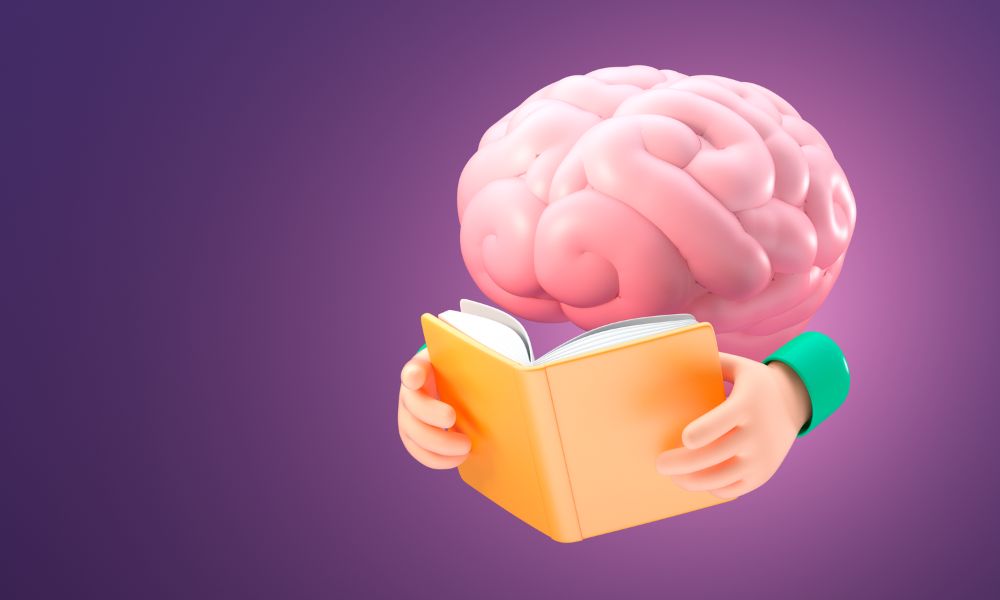
The brain is a strange and interesting part of our body. There are many types of functions inside it that control our behavior and thoughts. In this section, we will see how the brain works and what is its importance in our lives.
How does the brain work? This question is very interesting. There are thousands of neurons in our brain that perform different functions. These neurons communicate by sending and receiving signals from each other. This is how the brain controls our thoughts, emotions, and actions. (How does technology addiction affect the brain)
Neuroplasticity and Its Implications:
Neuroplasticity is an important concept that explains how miraculous the brain is. This shows that the brain has the ability to change and grow. When we learn something new or have a new experience, new neural connections are formed in the brain, and old connections become stronger. This develops the mind and brings new directions to our thoughts.
This concept of neuroplasticity helps us understand how we can shape our brains. If we invest our time and effort into new tasks, new connections are formed in our brains, which can change our thoughts and actions.
Through this, we learn about ourselves and improve our thoughts and actions. Thus, neuroplasticity is a powerful property of our brain that promotes our growth and progress.
Role of Neurotransmitters in Brain Function:
Neurotransmitters play a very important role in the brain. These are chemical messengers that send signals between neurons. When a neuron sends a signal, neurotransmitters transmit that signal to other neurons, allowing communication.
Some of the major neurotransmitters are dopamine, serotonin, and norepinephrine, which regulate our mood, attention, and experiences. Dopamine controls our pleasure and happiness feelings, serotonin controls our mood and sleep, and norepinephrine controls our stress and alertness. (How does technology addiction affect the brain)
Having these neurotransmitters flowing at the right levels is important for our brain and mental health. When these neurotransmitters are out of balance, our brain’s sensitivity, attention, and experiences are affected. This can cause mood swings, anxiety, and other mental problems.
In this section, we will see how these neurotransmitters affect technology addiction. When we spend more time in front of screens, our dopamine levels increase, which increases our pleasure and happiness feelings. This reduces our stress, but in the long run, it can become a big threat. Similarly, excess screen time also disrupts the balance of serotonin and norepinephrine.
The Impact of Technology Addiction

How technology addiction affects our brains is an important topic that needs to be understood. Nowadays, the use of technology has increased so much that it has become difficult for people to remain constantly dependent on their smartphones, computers, and the Internet. This not only leads to a shortage of time and practical problems, but it also has a direct impact on our minds.
Dopamine and Reward Pathways
Dopamine is a neurotransmitter that causes happiness and joy in our brains. It is also called a “feel-good” neurotransmitter. Dopamine is released when we engage in a pleasurable action or activity, such as eating good food or hearing someone’s praise. As soon as this release occurs, our brain experiences happiness and joy and motivates us to do this.
How Technology Triggers Dopamine Release
Technology, especially social media, video games, and other online activities, can cause the release of dopamine in our brains. Every time we see a notification on our smartphone, get a like on our social media post, or get a reward in a video game, dopamine is released.
These constant rewards and notifications compel us to engage with these digital platforms, and this increases our excessive interest and habit towards technology. Even when we are waiting for a new notification or reward, dopamine is released in our brain, which makes us feel a kind of happiness and joy. (How does technology addiction affect the brain)
In this way, using technology starts a cycle in our brain in which we crave constant rewards and stimuli. This cycle acts as a kind of reinforcement in our brain, due to which we become more attracted to and addicted to technology. This is a major reason for technology addiction, in which we get trapped in constant rewards and notifications and lose our time and attention.
Overstimulation and Desensitization
When we use technology for too long, especially in excessive amounts, our brains are at risk of becoming overstimulated. This can desensitize our dopamine receptors, that is, their response can be reduced.
When we are constantly exposed to more stimuli, such as endless scrolling on social media platforms or non-stop gaming sessions, our brain’s response increases, and this impacts the capacity of our dopamine receptors.
This means that over time, we need more and more stimulation to experience pleasure or happiness, and this increases our attention to technology use. Our brains become habituated to constant high levels of stimulation, which reduces our response to normal stimuli.
This reduces our ability to derive pleasure from ordinary life experiences, and our experiential pleasure is reduced. This is also one of the main reasons for technology addiction, in which we look for permanent stimulation and forget the joys of real life. (How does technology addiction affect the brain)
You can read our article on- Effective Resistance and Refusal Skills to Avoid Substance Abuse
Stress Response and Cortisol Levels
Another major effect of technology addiction is on the stress response and cortisol levels. Excessive technology use, especially social media and constant connectivity, can increase stress levels. When we constantly compare information, notifications, and understanding, our body perceives it as a threat, resulting in the release of stress hormones such as cortisol.
The Link Between Technology Use and Stress
There is a deep connection between technology use and stress. The pressure of being constantly connected, and the expectation of responding in a timely manner, can lead to a form of stress and anxiety. Fear of missing out (FOMO), the fear of not attending an event or event, and the pressure to respond on time, can add to stress and anxiety.
When we’re constantly bombarded with notifications, emails, and social media updates, our brains are in a constant state of alertness. This increases our stress levels and there is constant pressure on our minds. Similarly, with the use of technology, there is also a pressure of time constraints in our personal and professional lives.
This affects our mind and body, which also affects our health. Its effect also affects our stress levels in the long term and harms our mental and physical health. Therefore, keeping technology under control and using it properly can be helpful in reducing our stress levels.
Chronic Stress and Its Effects on the Brain
Chronic stress, which is caused by excessive technology use and constant connectivity, can have a profound effect on our brains. Long-term release of excess cortisol, the stress hormone, can affect brain function and structure. (How does technology addiction affect the brain)
Chronic stress can reduce the size of the brain’s prefrontal cortex, the brain’s locus of decision-making and avoidance control. Additionally, chronic stress can affect the formation of new neural connections and cognitive and mental levels.
Effects on Cognitive Function
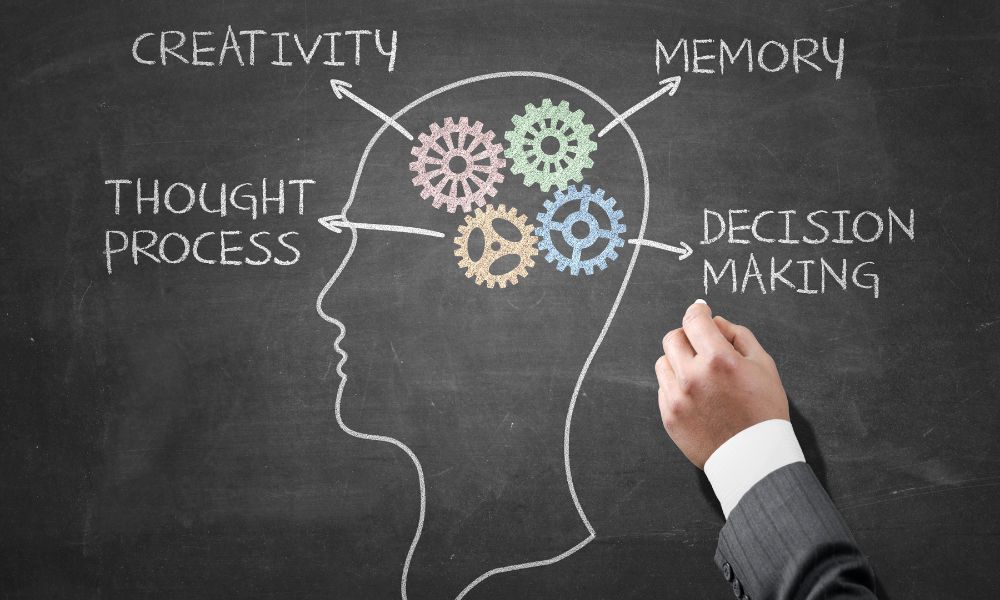
How technology addiction affects cognitive function is an important topic that we should understand. When we use technology for extended periods of time, especially smartphones and the internet, it can have a direct impact on our brain function and thoughts.
Attention and Concentration
Attention and perception are the two main areas that are affected by technology addiction. When we spend more time in front of screens, our attention and perception decrease. With constant notifications and distractions, our attention gets distracted, and we find it difficult to devote time to any one behavior.
Multitasking and Cognitive Load
We often engage in multitasking when using technology, such as watching videos and scrolling through social media simultaneously. Multitasking means doing several things at once, like watching a video on one hand and scrolling through social media on the other. When we multitask, our brain needs to handle multiple tasks at a time, which increases cognitive load.
This means that our brains need to do more work, and this reduces our brain power. When we multitask, our attention gets divided, and our brain’s ability to understand decreases. It can also reduce our performance, as our decision-making and problem-solving abilities are affected by our brain trying to do so much at the same time. (How does technology addiction affect the brain)
Therefore, we should pay attention to our multitasking habits and try to complete one task at a time, so that there is less pressure on our minds and our performance can improve. To avoid multitasking, we should do our work in a systematic manner and concentrate on one task at a time.
This can make our work more effective and stimulating. Moreover, we need to keep our time managed so that we can concentrate time on our various tasks and have the possibility to concentrate on only one task at a time.
Also, we also need to adopt a healthy lifestyle so that our mind and physical health remain safe. Yoga, meditation, regular exercise, and following a healthy diet can help us defend against technology addiction. Furthermore, we should use our time wisely and try to limit our use of devices. This will keep our minds healthy and stimulated, and we will be able to control our lives positively.
Impaired Attentional Control
Due to technological addiction, our brain’s attention control is also affected. When we rely on technology for extended periods of time, our brain’s ability to regulate our attention decreases. This also affects our ability to control our understanding, thoughts and decisions.
Memory Function
This is another major area where the impact of technology addiction has been seen.
Short-Term Memory and Information Retention
Technology addiction affects short-term memory and the ability to retain information. When our attention span and retention decrease, we experience decreased short-term memory capacity. This means that we are unable to remember the information learned in a short period of time and forget it quickly.(How does technology addiction affect the brain)
When we spend more time in front of screens and engage in various digital activities, our brain’s short-term memory capacity is affected. Our attention span decreases and our memory becomes weak. Due to this, we are not able to remember the information learned in a short time and forget it quickly.
Additionally, when we spend time with constant notifications and distractions, our attention becomes divided and our memory is affected. Our concentration is reduced and we are not able to remember any personal or professional work properly. Due to this, we may face failure in our studies, work, or any other kind of responsibility.
Long-Term Memory Formation
Long-term memory capacity is also affected by technology addiction. When we spend more time in front of a screen, our memory’s ability to retain new information decreases. This affects our long-term memory capacity and we find it difficult to remember any long-term information.
When we spend too much time in front of screens, our brains become over-stimulated and our memory is affected. Our attention span decreases and we are unable to process new information properly. This affects our long-term memory capacity, as we fail to remember new information.
Additionally, technology use distracts us and leaves us vulnerable to constant distractions. This also affects our long-term memory capacity, as we are not able to remember any long-term information. This is also a main effect of technological addiction, which affects our memory and we are not able to remember new information properly.
In this context, the impact of technology addiction on our cognitive functioning is severe. Decreased attention and perception, the effects of multitasking, decreased ability to control attention, and impaired memory capacity are all symptoms of technology addiction. Therefore, it is important for us to pay attention to our technology usage and use it in a balanced and limited manner. (How does technology addiction affect the brain)
Changes in Brain Structure
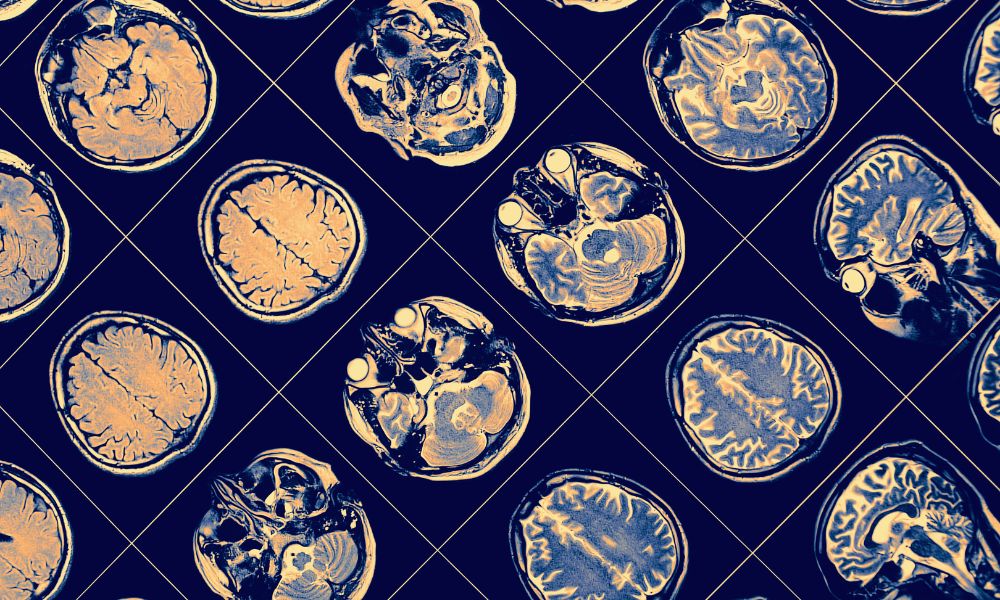
What kind of changes occur in the brain due to technology addiction, is a subject which needs to be understood. When we use technology for longer periods of time, there is a change in how our brain works and creates.
Grey Matter Alterations
Gray matter, which is the part of our brain where neurons and their connections are located, has been shown to be affected by technology addiction. Due to the use of more technology, there has been a change in gray matter. According to some research, gray matter decreases in people with technology addiction, which reduces brain function.
Structural Changes in the Prefrontal Cortex
The prefrontal cortex, which is the center of our judgment and impulse control, has also been affected by technology addiction. Due to excessive technology use, the structure of the prefrontal cortex changes, causing us to have less control over our decisions and unnecessary desires. This also changes our behavior and decisions.
The prefrontal cortex is a common part of our brain that controls our thoughts and helps us make intelligent decisions. When we use technology for extended periods of time, it changes the structure of our prefrontal cortex. This reduces our brain coordination and we become impulsive in our behavior.
This affects our behavior and decisions, and we become subject to our unnecessary desires. Our impulse control reduces and we indulge in unnecessary actions without thinking. This can cause problems in our life and we lose our ability to take proper decisions.(How does technology addiction affect the brain)
Impact on Decision-Making and Impulse Control
People with technology addiction have reduced ability to make decisions and control unnecessary desires. When changes occur in the prefrontal cortex, our decision-making abilities are impaired and we become more focused on unnecessary desires. This affects our behavior and life.
The prefrontal cortex is an important part of our brain that controls our thoughts and helps us make wise decisions. When we become victims of technology addiction, it reduces the capacity of our prefrontal cortex. This also affects our decision making ability and we tend to act impulsively.
Its effect is also visible in our lives, because we start taking decisions without thinking and become subject to our unnecessary desires. This leads to insensitivity in our behavior and we lose our ability to take proper decisions. This is also one of the main reasons why people with technology addiction create problems in their lives and become unable to achieve their proper goals.
White Matter Integrity
White matter, which is the neural connections that connect different parts of the brain, is also affected by technology addiction. When we use technology for longer periods of time, there is a change in the integrity of white matter. This delays neural connections and disrupts communication between different parts of the brain.
Disruption of Neural Connections
Due to delays and inconsistencies in neural connections, there is also inconsistency in the communication ability between different parts of the brain. When neural connections deteriorate, communication between different parts of the brain is reduced. This affects the working capacity of our brain.(How does technology addiction affect the brain)
Neural connections help different functions in the brain communicate. When these connections deteriorate, our brain’s coordination decreases and the communication between different parts of our brain also decreases. This affects the working capacity of our brain and reduces the efficiency of our brain.
Additionally, due to disharmony in neural connections, our brain capacity is also affected. Our brain’s ability to understand decreases and we feel difficulty in understanding new information correctly. This also affects the structural development of our brain and affects our brain capacity.
Impaired Communication Between Brain Regions
Technology addiction causes changes in the function and structure of the brain. Due to the reduction of gray matter, changes in the prefrontal cortex, and delays and disorganization in neural connections, our brains lack communication and coordination. This affects our decisions, behavior and mental health. Therefore, we should pay attention to our technology usage and use it to a limited extent.
When communication between different parts of our brain decreases, our brain coordination also decreases and our decision-making ability is affected. This leads to insensitivity in our behavior and we are not able to make appropriate decisions on time.
Additionally, when there are changes in our prefrontal cortex and disharmony in our neural connections, our brain capacity and functionality are also affected. This affects the structural development of our brain and reduces our brain capacity.
Therefore, it is important for us to control our technology usage and by using technology properly along with a healthy and active lifestyle, we can keep our mind healthy and active.(How does technology addiction affect the brain)
Behavioral Effects

How technology addiction changes our behavior is a huge issue that needs to be understood. When we use technology for extended periods of time, it has a direct impact on our behavior and interpersonal relationships.
Escalation of Use
One of the main symptoms of technology addiction is increased use. When we spend more time in front of the screen, our usage level also reduces. This escalation of use may be based on a number of factors, such as receiving constant rewards and notifications, or experiencing social pressure.
Tolerance and Withdrawal Symptoms
When we use technology for a longer period of time, our body and mind become more dependent on it. This increases our brain’s tolerance level, meaning we need more stimulation to experience pleasure or happiness. When we are away from technology, we may face withdrawal symptoms, such as anxiety, irritability, and mood swings.
When we spend more time in front of screens, our brain becomes more dependent and our tolerance level increases. This means that our brains require more stimulation and we experience less pleasure from our old activities. This increases our brain’s tolerance level and we seek more and more stimulation.
When we are away from technology, we may face withdrawal symptoms. These symptoms include anxiety, irritability, and mood swings. It takes time for our brains and bodies to adjust to being without technology, and during this time we may experience a variety of symptoms. Therefore, it is important for us to limit our use of technology and keep our dependency under control, so that we can avoid withdrawal.(How does technology addiction affect the brain)
Cravings and Compulsive Behaviors
People addicted to technology show nomadism and an excess of needs. When we are away from technology, we feel its torture and we immediately feel the desire to come back to it. These imperative needs influence our behavior and force us to use technology prematurely.
When we use technology for a longer period of time, our brains develop a kind of more basicness and we crave technology. When we are away from technology, we miss it and want to get back to it immediately. This influences our behavior and forces us to use technology prematurely.
These needs and requirements influence our behavior and make us more dependent towards technology. This causes imbalance in our lives and problems in professional and personal responsibilities. Therefore, it is important for us to maintain control over our technology usage and control our willpower and needs, so that we can deal with the problems in our life and live a healthy and balanced life.
Social Interaction
Technology addiction also affects our social interactions. As we spend more time in front of the screen, our social interactions are reduced. We spend less time with family and friends, and more time with online friends and virtual communities. Due to this our social relations become weak and we go into social isolation.
Effects on Interpersonal Relationships
The effects of technology addiction also affect our interpersonal relationships. When we spend too much time in front of the screen, our social relationships weaken. We spend less time with our family and friends, and this has caused harm to our relationships. This can also lead to misunderstandings, communication issues, and conflicts. (How does technology addiction affect the brain)
Social Isolation and Loneliness
Social isolation and loneliness are common symptoms of technology addiction. When we spend more time in the online world, our social relationships weaken and we move into social isolation. Isolation and loneliness have a negative impact on our mental health and we may have to face depression, anxiety and stress.
Overall, the effects of technology addiction have a direct impact on our behavior and personal relationships. Intensity of use, tolerance and withdrawal symptoms, seeking and compulsive behaviors, reduction in social interaction, impact on personal relationships, and social isolation and loneliness are all symptoms of technology addiction. Therefore, we should pay attention to our technology usage and use it to a limited extent.
Psychological Implications

The mental consequences of excessive use of technology are very serious and serious. Today we will see what effect it has on our mental state.
Mood Disorders
The biggest mental impact of technology addiction is mood disorders. People who stay online for a long time, their mood regulation mechanism gets disturbed. It focuses on controlling mood swings, angry states and emotions. Staying online for long periods of time can also worsen mental illnesses like depression and anxiety.
Anxiety and Depression
Technology addiction also increases the risk of anxiety and depression. People’s constant connectivity, comparison on social media and online pressure can all cause stress and anxiety. This increases symptoms of depression and anxiety such as sadness, restlessness and tension.
By overusing technology, people disconnect from their social interactions and feel a sense of loneliness. Constant comparison and facing unrealistic standards on social media can also increase depression and anxiety. People feel that their lives are inferior to the lives of their friends or family, which makes them disappointed and depressed. (How does technology addiction affect the brain)
Furthermore, our brains are also affected in unhelpful ways by the use of technology. Due to constant notifications and digital distractions, our attention gets divided and we start getting stressed. This affects our behavior and mental state, and we can become victims of depression and anxiety.
Therefore, we should pay attention to our technology usage and use it in a limited way, so that it does not have a bad effect on our brain and mental health. Maintaining healthy social connections, adopting a daily regimen of exercise and meditation, and balancing technology use all have a negative impact on our mental health.
Due to technology addiction, we often ignore life in the society around us and weaken social relationships. This makes us feel lonely and we become distant from the people around us. This is a matter of concern in itself, which can spoil our mental health.
Therefore, we should base our satisfaction on our technology usage. We should use technology in a limited way to control the situation, so that we can live a healthy and balanced life. Maintaining sensitivity and sensitivity, coping with the situation and adopting a healthy lifestyle gives us stability and peace in mental health. In this way, we can avoid the negative effects of technological use and move towards a positive life.
Mood Swings and Irritability
Mood swings and angry outbursts are also common in people with technology addiction. When people spend more time in front of screens, their attention and sensitivity decreases, which can lead to anger over small things. These mood swings and angry states also affect their behavior and interpersonal relationships. (How does technology addiction affect the brain)
When we spend too much time in front of screens, we become distracted and our patience wanes. Due to this, we get angry easily even on small things and our behavior becomes insensitive. This also affects our interpersonal relationships and we are not able to behave intelligently with the people close to us.
These mood swings and angry states also affect our mental health and our behavior. This can cause problems in our life and we become unable to achieve our proper goals. Therefore, we should pay attention to our technology use and use it in moderation, so that it does not have any adverse effect on our mental and interpersonal health.
Self-Esteem and Identity
Self-esteem and personality are also affected due to technology addiction. Due to constant comparison and unrealistic standards on social media, people have started considering themselves less than others. Due to this their self-esteem diminishes and their personality begins to disappear.
Comparison and Unrealistic Standards
Due to constant comparison and unrealistic standards on social media, people compare themselves with others, which reduces their self-esteem and confidence. People’s constant connectivity and pressure to portray a perfect life all lead to unrealistic standards, which affects our mental health.
Validation Seeking Behavior
People with technology addiction are also more likely to seek validation and acceptance. People try to get themselves recognized through likes, comments and shares on social media. Due to this, their self-worth and self-importance becomes dependent on external factors, which affects their mental health.
In closing, the mental and social effects of technology addiction are profound. It impacts our mood, anxiety, self-worth and personality. Therefore, we should pay attention to our technology usage and use it to a limited extent, so that our mental and social health remains safe. (How does technology addiction affect the brain)
Developmental Impact
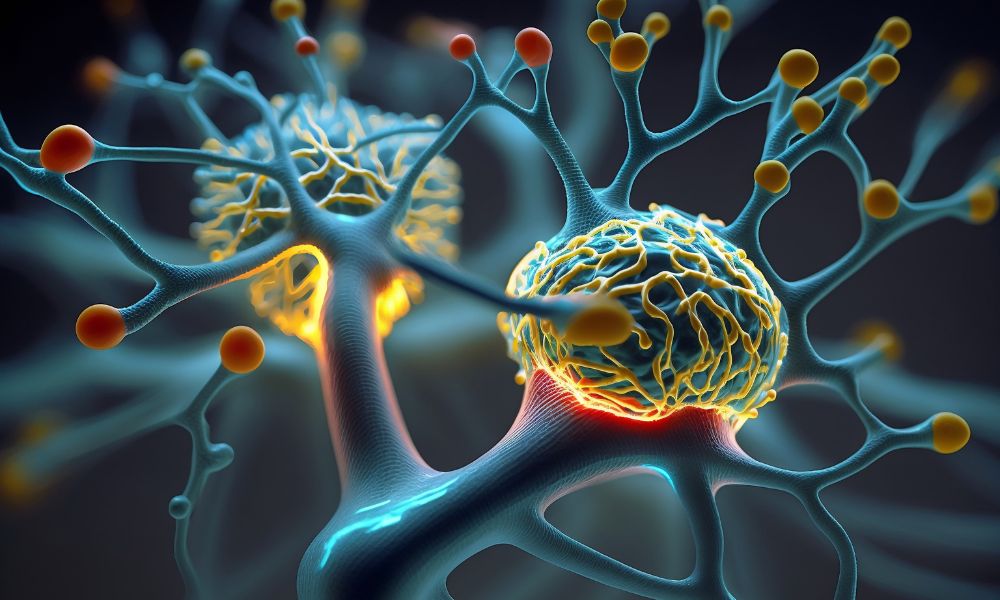
What impact the use of technology has on the brain development of childhood and adolescence is a very important subject that needs to be understood. Let us see how technology addiction affects the brain development of children and teenagers.
Childhood and Adolescent Brain Development
Childhood and adolescence are a time where mental development occurs very rapidly. During this time, new neural connections are being formed in the brains of children and adolescents and their cognitive and emotional development takes place. Excessive use of technology has a direct impact on their mental development during this period.
During this time, new neural connections are forming in the brains of children and teens that control their thoughts, emotions, and actions. When they have to spend more time in front of screens, their brain development is affected. This reduces their ability to form new neural connections and affects their brain function.
During this period, the cognitive and emotional development of children and adolescents is also very important. When they spend too much time on technology, their comprehension, attention, and behavior are also affected. This also impacts their social and educational development, and impairs their understanding and behavior.
Therefore, children and adolescents should be motivated to use technology in the right direction and in a limited manner, so that their mental development can take place in the right way and their understanding and behavior remain stable. Parents and caregivers should also monitor children’s technology use and provide them with the right guidance and support, so that their mental and social development is protected. (How does technology addiction affect the brain)
Vulnerability to Technology Addiction
The risk of technology addiction is especially high in childhood and adolescence. During this time, children and teenagers are curious to understand and explore new things, which also includes the use of technology. At this age, they have less impulse control and are more inclined to seek out new experiences, which makes them more vulnerable to the dangers of technology addiction.
Long-Term Consequences on Brain Maturation
Long-term use of technology addiction can result in long-term effects on the brain development of children and teens. Due to excess screen time and less physical activity, their brain development is affected. This can reduce their attention span and affect their mental and emotional development.
Educational Performance
Another major consequence of technology addiction is our lack of education. As children and teenagers spend more time in online activities and video games, their concentration on studies decreases and their academic performance may decline. Due to this, their enthusiasm and interest in studies decreases and they turn away from studies.
Academic Achievement and Learning
The effects of technology addiction also impact children’s and teens’ academic success and learning ability. Due to excessive screen time, their attention span decreases and they spend less time in studies. Due to this, their academic performance may drop and they may lag behind in their studies.
Impact on Critical Thinking Skills
People with technology addiction also have an impact on their critical thinking and problem solving skills. Spending too much time in front of the screen makes their mind quiet and uneasy, which reduces their thinking power and problem solving ability. This also affects their personality development. (How does technology addiction affect the brain)
When we spend more time in front of screens, our mind becomes static and uneasy. This affects our thinking power and reduces our problem solving ability. We become unable to find solutions to our problems and our brain’s ability to solve problems is affected.
Apart from this, spending more time in front of the screen also affects our personality development. Our social and interpersonal sphere also decreases and we become insensitive in our understanding and behavior. This affects our personality development and we are not able to solve the problems in our life.
Therefore, we should control our technology usage and spend time in healthy behaviors and offline activities to keep our mind healthy and active. All these are the reasons why it is necessary for us to review and limit our technology usage, so that our Mental health and social life remains effectively protected.
Balanced technology use can help us live healthy, active, and prosperous lives, while excessive use can harm us. Therefore, we should follow the path of healthy and proper technology usage, so that our mind and mental health remains safe.
Health Risks

What are the risks to our health due to excessive use of technology, and one of the main ones is the consequences for physical health. When we sit in front of the screen for a longer period of time, our body has to face less fatigue and fatigue. This affects our physical health and reduces exercise and energy in our body.(How does technology addiction affect the brain)
Physical Health Consequences
Due to technology addiction, our exercise and physical activities decrease. As we spend more time in front of screens, our physical movements decrease and our mass gets underutilized. This can increase our body weight, and affect our metabolism, which has a negative impact on our physical health.
Apart from this, sitting in front of the screen for a long time also affects our eyes and back. Our eye strain increases, and we may have back pain and exercise problems. This affects the health of our eyes and also has a negative impact on our overall physical condition.
Therefore, we should pay attention to our technology use and use it in moderation, so that there is no adverse effect on our physical health. We should do exercise and workout regularly and follow the right diet and regime to keep our body healthy and active.
Sedentary Lifestyle and Obesity
Due to technology addiction, people remain sitting for longer periods of time, which leads to an inactive or sedentary lifestyle. This reduces their physical activity and consumes more calories, which can lead to obesity. There are many problems associated with obesity, such as diabetes, heart disease, and obesity.
Sleep Disturbances and Insomnia
Another big danger of technology addiction is lack of sleep and insomnia. When we spend more time in front of the screen at night, our brain slows down and we lose our attention while sleeping. This affects our daily routine and affects our health. (How does technology addiction affect the brain)
Eye Strain and Digital Eye Syndrome
Spending too much time in front of the screen puts a lot of strain on our eyes, which can cause eye strain and digital eye syndrome. This causes pain, swelling and dryness in our eyes. This also affects the health and vision of our eyes.
Effects on Vision and Eye Health
The effects of technology addiction affect our vision and eye health. Spending too much time in front of the screen weakens our eyesight and also affects our eyesight. This helps in the health and acuity of our eyes.
Strategies for Prevention and Management
There are some ways to avoid and manage technology addiction. We should control our screen time and do regular exercise and workout. We should also pay attention to the time and quality of our sleep. We should also take regular eye rest and take care of our eyes.
In conclusion, technology addiction affects our physical and mental health. This poses many risks to our health, such as obesity, lack of sleep, and eye problems. Therefore, we should pay attention to our technology usage and take appropriate action to protect our health.
Addressing Technology Addiction
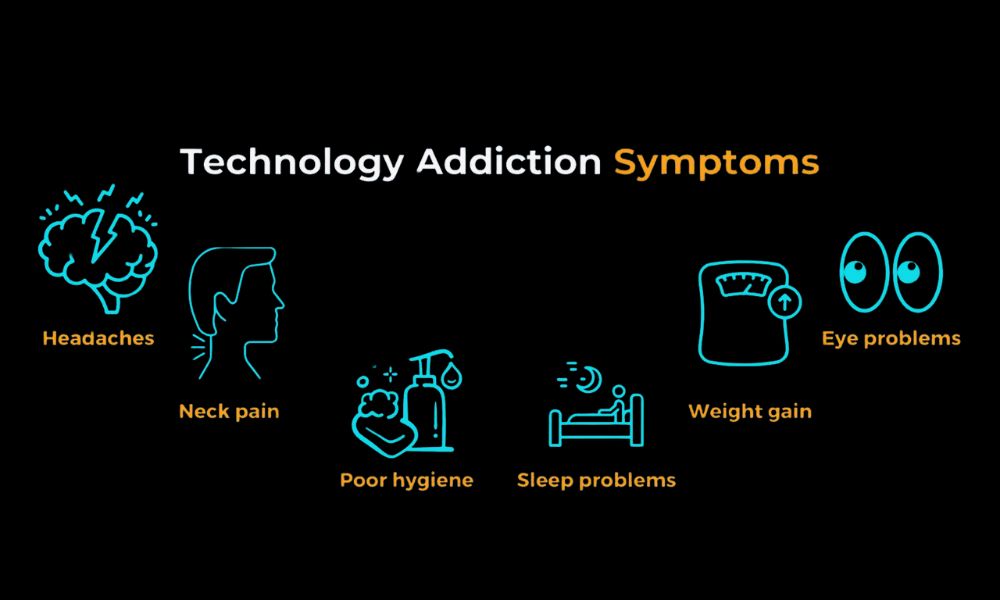
How can one combat technology addiction, it is a very important thing which needs to be understood. Let us see how technology addiction can be identified and how it can be resolved. (How does technology addiction affect the brain)
Recognizing the Signs
The first step in identifying technology addiction is to understand its symptoms. If you prefer to be in front of a screen constantly, find it difficult to reduce screen time, or are unable to control online activities, these may be signs that you are a victim of technology addiction.
Self-Assessment and Awareness
Understand yourself and check whether you are a victim of technology addiction or not. Pay attention to your screen time and online activities and see if your behavior and mental state is being affected. Understand your mental state and sensitivities and see if your technology use is healthy or not.
Seeking Professional Help
If you think you may be suffering from technology addiction, consider seeking professional help. Talk to a counselor or therapist who understands your technology addiction and can give you the right guidance. With professional help you can solve your problem and improve your life. (How does technology addiction affect the brain)
Establishing Healthy Habits
Establishing healthy and balanced habits is also an important step in addressing technology addiction. Include exercise and physical activities in your daily routine. Divide your time properly and include offline activities and hobbies in your daily routine.
Setting Boundaries and Limiting Screen Time
Controlling your behavior by limiting screen time is also an important step. Limit your screen time and also save time for offline activities and social connections. Block notifications on your phone and use the screen at specific times.
Promoting Offline Activities and Social Connections
Encouraging offline activities and social interactions is also an important step in addressing technology addiction. Spend time with your friends and family and explore offline hobbies. With this, you can keep your time away from screens and strengthen your relationships.
In short, technology addiction can be a solution if we understand it and take appropriate action. Control your behavior, establish healthy habits, and encourage offline activities and social interactions. With this we can improve our health and social life. (How does technology addiction affect the brain)
Exploring Facts and Stats
Technology addiction, particularly screen time addiction, is a growing concern, especially among young people in the US. Here are some key facts and stats to highlight its impact on the brain:
- Increased Screen Time:
- According to a 2021 report by Kaiser Family Foundation, teens in the US spend an average of 7.5 hours per day on screens (excluding schoolwork). (https://www.kff.org/)
- Brain Development Impact:
- The developing brain is particularly vulnerable to the effects of technology addiction.
- A 2019 study published in JAMA Psychiatry found that adolescents with higher screen time had reduced gray matter volume in the prefrontal cortex, a region crucial for decision-making, impulse control, and attention. (https://www.ncbi.nlm.nih.gov/pmc/articles/PMC8432290/)
- Dopamine and Reward System:
- Technology use triggers the release of dopamine, a neurotransmitter associated with pleasure and reward.
- Constant stimulation from technology can lead to changes in dopamine signaling, making it harder to focus on less stimulating activities. (https://pubmed.ncbi.nlm.nih.gov/32699518/)
- Mental Health Concerns:
- Research suggests a link between technology addiction and increased risk of depression, anxiety, and sleep problems.
- A 2010 study in Computers in Human Behavior found that adolescents with high levels of internet addiction had higher rates of depression and social phobia. (https://www.ncbi.nlm.nih.gov/pmc/articles/PMC9224971/)
Additional Sources:
- National Institute on Drug Abuse: https://www.samhsa.gov/data/data-we-collect/nsduh-national-survey-drug-use-and-health
- The Jed Foundation: https://jedfoundation.org/
- American Academy of Child and Adolescent Psychiatry: https://www.aacap.org/
Points to Consider:
- While these studies suggest a correlation between technology use and brain changes, more research is needed to determine causation.
- Individual factors (e.g., genetics, mental health history) can influence how technology affects the brain.
- Technology use can also have positive benefits, such as promoting social connection and learning. (How does technology addiction affect the brain)
Conclusion
(How does technology addiction affect the brain)- In this blog post we looked at how technology possession affects our brain, behavior and health. We look at how it affects the brain development of children and teens, how it affects our behavior and interpersonal relationships, and how it affects our physical and mental health.
We found that there are some ways to identify and address technology abuse, such as self-assessment, professional help, and establishing healthy habits. Additionally, we looked at how we can address technology possession by controlling our screen time, encouraging offline activities and social interactions, and establishing healthy habits.
Thus, it is important that we pay attention to our technology usage and use it in moderation so that it does not affect our brain, behavior, and health. We should take this step to maintain a balanced and healthy mindset in our life.
I hope you have liked the information we have shared in our article, to know more about this you can read our other article too.
Frequently Asked Questions
How does technology addiction affect the brain?
Technology addiction can significantly impact the brain by altering neural pathways, particularly those related to reward processing and impulse control. Excessive technology use can lead to changes in brain chemistry, affecting neurotransmitter levels and neural connectivity.
What are the long-term effects of technology addiction on cognitive function?
Long-term technology addiction can impair cognitive function, including attention span, memory, and problem-solving skills. Prolonged exposure to screens may also contribute to decreased brain activity in areas responsible for critical thinking and decision-making.
Does technology addiction lead to changes in behavior?
Yes, technology addiction can lead to changes in behavior, including increased impulsivity, decreased self-control, and heightened sensitivity to rewards. Individuals may exhibit compulsive behaviors related to technology use, such as spending excessive time online or difficulty disengaging from digital devices.
How does technology addiction affect mental health?
Technology addiction has been linked to various mental health issues, including anxiety, depression, and mood disorders. Excessive screen time and online interactions can exacerbate feelings of loneliness, isolation, and low self-esteem, contributing to overall psychological distress.
Can technology addiction impact social relationships?
Yes, technology addiction can negatively impact social relationships by reducing face-to-face interactions and diminishing the quality of interpersonal connections. Excessive reliance on digital communication may lead to feelings of disconnection and isolation from friends, family, and the community.
Is technology addiction associated with physical health problems?
Yes, prolonged technology addiction can lead to physical health problems such as eye strain, headaches, and musculoskeletal issues. Sedentary behaviors associated with excessive screen time may also increase the risk of obesity, cardiovascular disease, and other chronic conditions.
How does technology addiction affect sleep patterns?
Technology addiction can disrupt sleep patterns by interfering with the body’s natural circadian rhythm. Exposure to screens emitting blue light, late-night browsing, and compulsive use of electronic devices before bedtime can impair sleep quality and duration, leading to fatigue and daytime drowsiness.
Are there neurological changes associated with technology addiction?
Yes, research suggests that technology addiction can lead to neurological changes in the brain, including alterations in the structure and function of brain regions involved in reward processing, decision-making, and impulse control. These changes may contribute to addictive behaviors and difficulty regulating technology use.
Can technology addiction impact academic or occupational performance?
Yes, technology addiction can negatively impact academic and occupational performance by reducing productivity, impairing concentration, and interfering with learning or job-related tasks. Excessive screen time may also lead to procrastination, poor time management, and decreased overall performance.
Is technology addiction treatable?
Yes, technology addiction is treatable through various interventions, including cognitive-behavioral therapy, mindfulness-based approaches, and lifestyle modifications. Developing healthy screen habits, setting boundaries around technology use, and seeking support from mental health professionals can help individuals manage and overcome technology addiction.